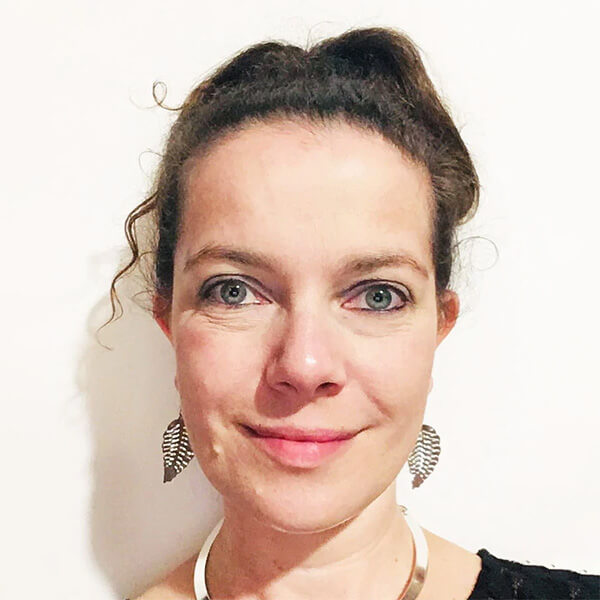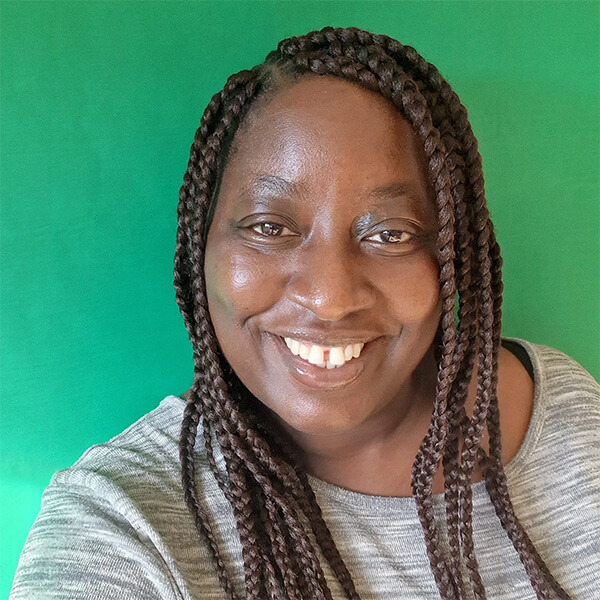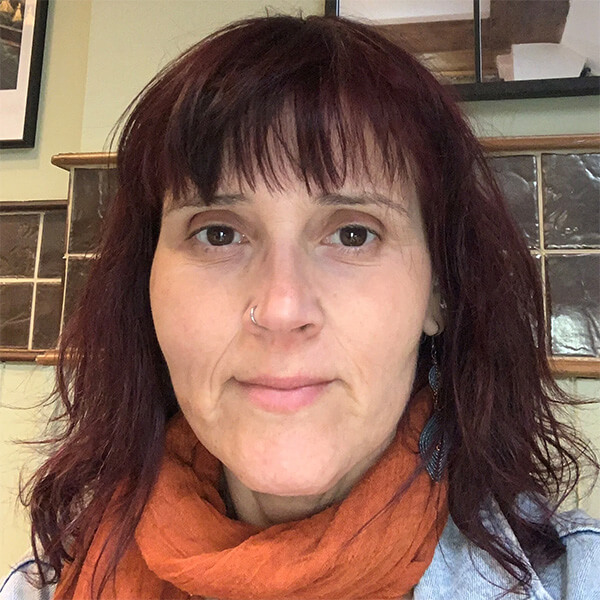Places:
Places are awarded on a "first paid first serve" basis due to demand
Cost / delivery:
£875 / 10 weeks, online or on-campus
Intermediate: October
Advanced: January
Start dates(s):
October 2025
January 2026
These workshops will be facilitated by a qualified and experienced BAPT-registered Play Therapist.
Experiential activities form the core of the course, will provide you with an opportunity to explore and reflect on the process of Play Therapy on a personal level.
Connections and links will be made to the theories that underpin Play Therapy as this emerges from the practical component, enabling you to learn from theory that directly relates to your experience.
Please note that whilst the emphasis of the workshops is on an educational not a therapeutic experience, you should be aware of potential tensions between your personal and professional responses and should be prepared for a degree of self-exposure.
Delivery
Intermediate
- On-campus: 18 October - 13 December 2025 (8 x two-hour Wednesday evening classes plus two Saturdays)
- Online: 18 October - 13 December 2025 (8 x two-hour Thursday evening classes plus two Saturdays)
Advanced
- On-campus: 10 January - 7 March 2026 (8 x two-hour Wednesday evening classes plus two Saturdays)
- Online: 11 January - 8 March 2026 (9 x two-hour Thursday evening classes plus two Sundays)
Seminars and lectures
Seminars and lectures are integrated into the workshop experiences. Each workshop will be part experiential play therapy and part seminar/lecture.
The seminars will often comprise presentations of clinical / therapeutic work and opportunity for group discussions. Visiting experts from different fields will lead seminars/lectures on particular specialist areas of play therapy practice.
Assessment
You will be expected to keep a reflective log of your experiences while on the course which constitutes a record of your personal psychological journey including photographs of images created in the experiential workshops.
As such, the log itself will be a highly personal manuscript and will not be assessed. In the last workshop, you will present a dramatised, artistic or narrative story of your journey to share with the class.
The story will be approximately three minutes long and may be presented in the play media of your choice.
You will need to complete a minimum of 80% of the course and a satisfactory final story in order to receive an electronic attendance certificate. This will not automatically ensure your entry to the University of Roehampton's MA in Play Therapy; however, if you are considering applying for professional training, we encourage you to undertake this course.
Suggested reading
University of Roehampton Play Therapy Foundation Course
GENERAL TEXTS ON PLAY THERAPY
(* = top recommendations)
* Axline, V. (1984) Dibs In Search of Self. Buckinghamshire: Penguin Books
* Axline, V. M. (1989) Play Therapy. London: Churchill Livingstone
* Ayling, P., Armstrong, P., & Gordon Clark, L. (2019) Becoming and Being a Play Therapist: Play Therapy in Practice. London: Routledge
Carroll, C. (1998) Introduction to Therapeutic Play. Oxford: Blackwell Science.
Cattanach, A. (2002) (ed.) The Story So Far. London: Jessica Kingsley Publishers.
* Cattanach, A. (2003) Introduction to Play Therapy. Hove: Brunner-Routledge
Cattanach, A. (2008) Narrative Approaches in Play Therapy with Children. London: Jessica Kingsley Publishers
* Cochran, N.H., Nordling, W.J. and Cochran, J.L. (2010) Child- Centred Play Therapy: A Practical Guide to Developing Therapeutic relationships with Children. New York: John Wiley & Sons
Gil, E. (1991) The Healing Power of Play: Working with abused children. NY: Guilford Press
* Gordon Clark, L. (2018) Play Therapy. In: Robson, M., & Pattison, S. (eds.) The Handbook of Counselling Children and Young People (2nd ed.) London: Sage with BACP, pp. 106-119
Guerney, L. (2001) Child Centered Play therapy. International Journal of Play Therapy, 10 (2), 13-31.
Giordano, M., Landreth, G. & Jones, L. (2005) A Practical handbook for Building the Play Therapy Relationship. New Jersey: Jason Aronson
Jennings, S. (1999) Introduction to Developmental Playtherapy. London: Jessica Kingsley Publishers
Landreth, G. L. (2001) Innovations in Play Therapy: Issues, Process and Special Populations. NY: Brunner-Routledge
* Landreth, G. L. (2012) Play Therapy: The Art of the Relationship. (3nd ed.) NY: Brunner-Routledge
Landreth, G., Sweeney, D., Ray, D., Homeyer, L. & Glover, G. (2005) Play Therapy interventions with Children's Problems (2nd ed.). Northvale, NJ: Jason Aronson
Le Vay, D., & Cuschieri, E. (2016) Challenges in the Theory and Practice of Play Therapy. London: Routledge
McCarthy, D. (ed) (2008) Speaking about the Unspeakable: Non-verbal methods and experiences in therapy with children. London: Jessica Kingsley Publishers
* McMahon, L. (2009) The Handbook of Play Therapy and Therapeutic Play (2nd Ed). East Sussex: Routledge
Norton, C. C. & Norton, B. E. (2002) Reaching Children through Play Therapy: An experiential approach (2nd Ed.) Denver: White Apple Press.
* Oaklander, V. (1988) Windows to our Children. New York: The Gestalt Journal Press
* O’Connor, K. J. (2000). The Play Therapy Primer. New York: John Wiley & Sons, Inc.
* O'Connor, K. J., & Schaefer, C. E. (1983) Handbook of Play Therapy. New York: John Wiley & Sons, Inc.
Ryan, V. & Wilson, K. (2000) Case Studies in Non-directive Play Therapy. London: Jessica Kingsley Publishers.
* Schaefer, C. (ed.) (2011) Foundations of Play Therapy. (2nd ed) New Jersey: John Wiley & sons
Stagnitti, K. & Cooper, R. (Eds.) (2009) Play as Therapy, Assessment and Therapeutic interventions. London: Jessica Kingsley Publishers.
Sunderland, M. (2000) Using Story telling as a Therapeutic Tool with Children. Oxon: Winslow Press.
* VanFleet, R., Sywulak, A.E & Sniscak, C.C. (2010) Child Centered Play Therapy. New York: The Guilford Press
* West, J. (1996) Child Centred Play Therapy (2nd ed.). London: Arnold
* Wilson, K. & Ryan, V. (2005). Play Therapy: A non-directive approach for children and adolescents. (2nd ed). London: Bailliere Tindall
Materials required
If studying the online course, you will need:
- Felt-tip pens, pastels, coloured pencils or crayons
- A4 and/or A3 paper/card
- Small sandtray/paper plate with sand, rice, flour, lentils or anything participants have at home
- A small handful of minatures (figures, animals, vehicles, little houses, fences etc) or natural items such as stones, sticks, leaves etc
- Playdough or clay
Tutors

Elisa Fontana
Tutor
Elisa Fontana, MA in Play Therapy, BSc (Hons) Early Years, BSc (Hons) Art and Drama Studies, BAPT-reg Play Therapist, Registered Member MBACP, trained in Child-Parent Relationship Therapy (CPRT).
Has delivered training in Social and Emotional Learning (SEL) and Play Therapy skills in the UK, Italy, India. Has been invited lecturer at the Department of Educational & Counselling Psychology, University of Dhaka (Bangladesh) and the Department of Communication and Art Education, Academy of Art, Palermo (Italy).
Has worked as a research assistant at the University of Roehampton on the Yoga-Integrated Psychotherapy study. Has been selected with the paper The emotional power of Play. Drama and Child-Centered Play Therapy as effective teaching support on Social and Emotional Learning at the International Conference The Future of Education Firenze, Italy, and has published book reviews on the British Journal of Play Therapy.
Elisa is currently the coordinator for the South London Play Therapy Support Group, and is working as School Project Manager for the therapeutic services in Primary Schools in London, delivering Play Therapy, managing and supervising a team of school counsellors and trainees.

Tiwone Mtonga
Tutor
Tiwone Mtonga is a registered Play Therapist and Clinical Supervisor (BAPT and BACP). She is also a Therapeutic Life Story Practitioner and uses Theraplay Informed Practice.
She has over 20 years experience working with children and over 10 of these as a practitioner in the fields of attachment, child abuse, social, emotional and behavioural difficulties, children’s mental health and childhood trauma.
Her work history includes working as Play Therapist, Therapeutic Life Story Practitioner and being Theraplay Informed while working within school settings and for local Fostering and Permanence Teams in London Boroughs.

Filipa Alvarez
Tutor
Filipa is a highly experienced and qualified practitioner in the fields of Psychology (clinical area) and Play Therapy (with children, adolescents and adults). She completed a Master Degree in Forensic Psychology.
She is also an Integrative Sandplay Therapist. She has been working creatively for over 25 years with trauma and attachment, delivering not only individual therapeutic support, but also Theraplay® informed work, Filial Therapy and Therapeutic Life Story Work. Filipa has been teaching yoga for over 11 years and she is a meditation practitioner; she incorporates body-based approaches, as well as meditation teachings into her integrative therapeutic way of working. She is also an experienced and registered clinical supervisor for the helping professions, using a creative approach. She is a qualified trainer, mainly in the university setting.

